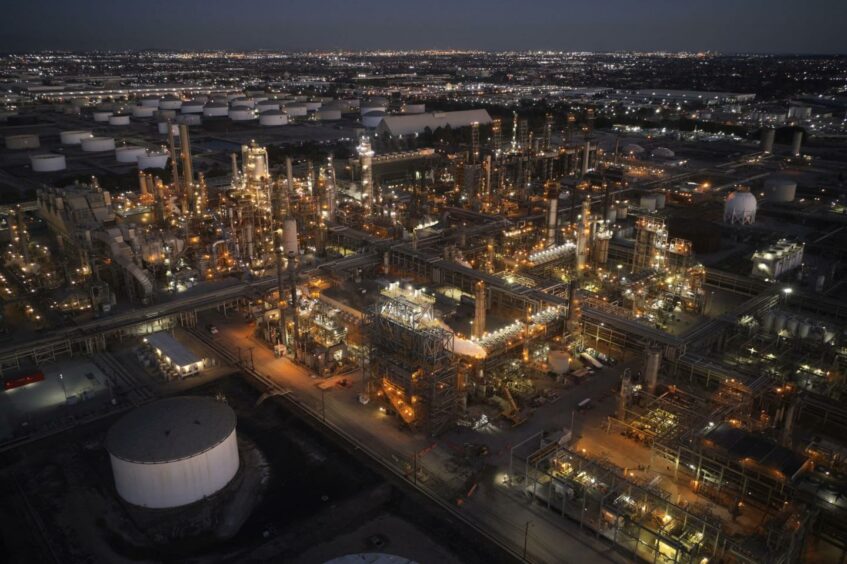
Oil surged, briefly touching $139 a barrel, in a dramatic start to another tempestuous week after the US said it was discussing a ban on Russian crude imports, fanning supply fears in an already jittery market.
Brent jumped as much as 18% in a matter of minutes at the open on Monday before paring some gains. Prices last week advanced the most in almost two years as Russia’s invasion of Ukraine triggered fears of a brutal supply crunch. The US is in “very active discussions” with its European allies about the ban to tighten the economic squeeze on President Vladimir Putin, Secretary of State Antony Blinken said on NBC’s “Meet the Press.”
The White House has so far resisted restrictions on Russian crude imports due to concerns about the impact of rising prices on consumers, but most buyers are refusing to take it, resulting in an embargo in all but name. JPMorgan Chase & Co. said Brent could end the year at $185 a barrel if Russian supply continues to be disrupted, while one hedge fund has said $200 was a possibility.
“We have plenty of twists and turns to come,” Mike Muller, Vitol Group’s head of Asia, said Sunday on a podcast produced by Dubai-based consultant and publisher Gulf Intelligence. “While I think the world is already pricing in the fact there’ll be an inability to take in a serious amount of Russian oil in the western hemisphere, I don’t think we’ve priced in everything yet.”
Brent traded in its biggest range last week since the launch of the futures contract in 1988 — eclipsing the wild swings in the global financial crisis of 2008 and the demand plunge sparked by the coronavirus pandemic. Traders, shippers, insurers and banks have been increasingly wary of taking on or funding purchases of Russian barrels as they navigate financial sanctions.
Saudi Arabia hiked prices of its main crude blends following the surge in oil futures, increasing costs for refiners that may be forced to cut processing rates should profit margins significantly shrink. Meanwhile, OPEC producer Libya said its oil production fell below 1 million barrels a day because of a political crisis, adding to an already tight supply-demand balance.
Prices:
Brent for May settlement advanced 9.1% to $128.86 a barrel on the ICE Futures Europe exchange at 10:47 a.m. in Singapore.
The contract rose 21% last week.
West Texas Intermediate for April delivery gained 8.1% to $125.08 on the New York Mercantile Exchange.
Brent’s backwardation, a bullish structure where prompt barrels are more expensive than later-dated cargoes, rose to $5.24 a barrel, highlighting nervousness about short-term supply. The prompt spread was $3.77 on Friday.
At the weekend, the International Monetary Fund warned that the war, as well as the subsequent sanctions imposed on Russia, will have a “severe impact” on the global economy. “While the situation remains highly fluid and the outlook is subject to extraordinary uncertainty, the economic consequences are already very serious,” the Washington-based lender said.
Saudi Arabia raised prices for all regions, boosting its Arab Light crude for next month’s shipments to Asia to $4.95 a barrel above the benchmark it uses. That’s the widest premium since Bloomberg started compiling data in 2000.
Separately, Iran made strides toward a deal with world powers over its nuclear program. If successful, that could pave the way for sanctions on Tehran’s oil to be lifted by the third quarter and alleviate some of the market tightness with the official return of oil exports.
Recommended for you
